-
 Bitcoin
Bitcoin $84,823.1619
0.53% -
 Ethereum
Ethereum $1,673.1984
4.49% -
 Tether USDt
Tether USDt $0.9998
0.00% -
 XRP
XRP $2.1525
-2.22% -
 BNB
BNB $592.0337
0.64% -
 Solana
Solana $133.0423
2.84% -
 USDC
USDC $1.0000
0.00% -
 Dogecoin
Dogecoin $0.1658
0.27% -
 TRON
TRON $0.2579
4.66% -
 Cardano
Cardano $0.6481
-0.74% -
 UNUS SED LEO
UNUS SED LEO $9.3930
-0.26% -
 Chainlink
Chainlink $13.1199
1.57% -
 Avalanche
Avalanche $20.3950
2.06% -
 Stellar
Stellar $0.2454
-1.43% -
 Sui
Sui $2.3137
-0.23% -
 Shiba Inu
Shiba Inu $0.0...01231
0.23% -
 Hedera
Hedera $0.1696
-1.49% -
 Toncoin
Toncoin $2.8535
-1.08% -
 Bitcoin Cash
Bitcoin Cash $340.7252
-1.56% -
 Litecoin
Litecoin $78.3988
-0.34% -
 Polkadot
Polkadot $3.7719
1.15% -
 Dai
Dai $1.0000
0.00% -
 Hyperliquid
Hyperliquid $15.8787
-2.69% -
 Pi
Pi $0.7564
0.34% -
 Bitget Token
Bitget Token $4.2933
-1.18% -
 Ethena USDe
Ethena USDe $0.9989
-0.01% -
 Monero
Monero $208.6755
0.73% -
 Uniswap
Uniswap $5.6055
3.31% -
 Pepe
Pepe $0.0...07607
4.45% -
 OKB
OKB $53.0803
-1.85%
How to pay tax on mining proceeds?
Cryptocurrency mining profits are generally taxable income, requiring accurate record-keeping of revenue and expenses like electricity and hardware costs. Tax laws vary globally; professional advice is crucial for compliance.
Mar 20, 2025 at 03:14 pm
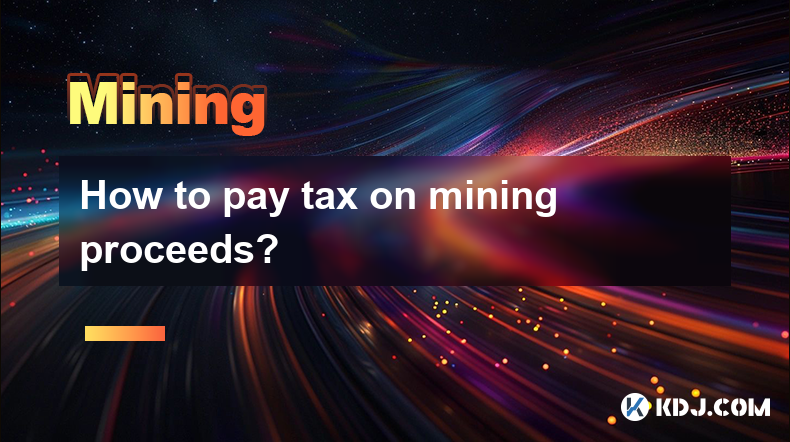
Key Points:
- Understanding the tax implications of cryptocurrency mining is crucial for compliance.
- Tax laws vary significantly depending on your location.
- Mining proceeds are generally considered taxable income.
- Accurate record-keeping is essential for tax reporting.
- Consult a tax professional for personalized advice.
How to Pay Tax on Mining Proceeds?
Navigating the tax landscape of cryptocurrency mining can be complex. The process isn't uniform globally; tax laws vary considerably between countries and even within different jurisdictions of the same country. Understanding your local tax regulations is paramount. Generally, the profits derived from cryptocurrency mining are considered taxable income, subject to the same rules as other income sources like wages or investments.
The first step is identifying your taxable income. This involves calculating your gross mining revenue—the total value of all cryptocurrencies mined, in USD equivalent at the time of mining. Then, you need to deduct your expenses. These allowable deductions usually include the cost of electricity, hardware (mining rigs, computers), software, internet fees, and cloud services. It’s crucial to keep meticulous records of all transactions and expenses.
Once you've determined your net mining profit (gross revenue minus expenses), you need to report this amount on your tax return. The exact method of reporting varies greatly depending on your country's tax system. Some countries may require you to report your crypto income as part of your overall income, while others might have specific sections for digital asset income.
Many countries treat cryptocurrency as property, not currency. This means that every transaction, including mining, creates a taxable event. For example, if you mine Bitcoin and immediately sell it, you'll have two taxable events: one when you acquire the Bitcoin (at its fair market value at the time of mining) and another when you sell it (capital gains tax). This is crucial to understand and record accurately.
The cost basis of your mining operation is critical. This includes all costs associated with acquiring and operating your mining equipment, software, and electricity. Precise record-keeping is essential for accurately calculating your cost basis and reducing your tax liability. Remember to retain all invoices, receipts, and transaction records. This diligent record-keeping simplifies the tax reporting process significantly and can protect you from potential audits.
Tax reporting for cryptocurrency mining isn't straightforward. The complexities involved in calculating cost basis, dealing with fluctuating cryptocurrency values, and navigating differing tax laws often require professional help. Engaging a tax advisor specializing in cryptocurrency taxation is highly recommended. They can provide tailored guidance based on your specific circumstances and ensure compliance with relevant tax regulations.
Depending on your jurisdiction, you might face different tax rates for your mining profits. These rates often depend on your overall income level and the applicable tax brackets. Some countries impose capital gains taxes on the sale of mined cryptocurrency, while others may tax it as ordinary income. Understand the relevant tax rates applicable in your area.
It's crucial to stay updated on any changes to tax laws regarding cryptocurrency. Tax regulations surrounding digital assets are constantly evolving. Regularly reviewing updates from your tax authority and seeking advice from a tax professional can ensure your compliance with current legislation. Ignoring these changes can lead to significant penalties and legal issues.
Let's address the nuances of different tax scenarios. If you're mining in a pool, the distribution of rewards often necessitates meticulous tracking. You’ll need to record the value of each reward received at the time of receipt. If you’re solo mining, the process is slightly simpler, but the same principle of accurate record-keeping applies. The value of your mined crypto is determined at the time it’s considered received, not when it’s sold.
Using accounting software designed for cryptocurrency transactions can significantly simplify the process. These specialized software solutions often have features to track transactions, calculate cost basis, and generate reports suitable for tax filing. Choosing appropriate software can streamline the process and minimize errors.
Remember, the specific requirements for reporting cryptocurrency mining income vary by country and even by state or province within a country. There's no one-size-fits-all answer. The complexity often necessitates professional help. A tax professional experienced in cryptocurrency taxation can guide you through the process, ensuring you meet all regulatory requirements and minimize your tax burden. Don't underestimate the importance of seeking professional guidance.
Frequently Asked Questions:
Q: Are mining rewards immediately taxable?
A: Yes, in most jurisdictions, the value of cryptocurrency mined is considered taxable income at the time of receipt, regardless of whether you sell it immediately.
Q: What expenses are deductible when mining cryptocurrency?
A: Deductible expenses typically include electricity costs, hardware costs (mining rigs, computers), software, internet fees, and cloud services. Keep thorough records of all expenses.
Q: Do I need a tax advisor specializing in cryptocurrency?
A: While not strictly mandatory, it is highly recommended. Cryptocurrency tax laws are complex and constantly evolving, making professional guidance invaluable for ensuring compliance and minimizing tax liability.
Q: What happens if I don't pay taxes on my mining income?
A: Failure to pay taxes on cryptocurrency mining income can result in significant penalties, including fines and potential legal action. Accurate and timely tax reporting is crucial.
Q: How often do I need to report my mining income?
A: This depends on your jurisdiction's tax laws. Some countries require annual reporting, while others may have different reporting frequencies. Consult your local tax authority or a tax professional.
Disclaimer:info@kdj.com
The information provided is not trading advice. kdj.com does not assume any responsibility for any investments made based on the information provided in this article. Cryptocurrencies are highly volatile and it is highly recommended that you invest with caution after thorough research!
If you believe that the content used on this website infringes your copyright, please contact us immediately (info@kdj.com) and we will delete it promptly.
- Mutuum Finance (MUTM) Emerges as a Top Contender in the Market, Offering Up to 140% Returns
- 2025-04-14 19:45:13
- Dogecoin (DOGE) Witnesses New Selling Pressure After a Brief Price Recovery
- 2025-04-14 19:45:13
- Ray Dalio Is Sounding the Alarm — Not Just About a Potential Recession
- 2025-04-14 19:40:13
- Bitcoin (BTC) Could Be Gearing Up for Its Next Major Move
- 2025-04-14 19:40:13
- Michael Saylor Doubles Down on Bitcoin, Adding 22,000 BTC to His Treasury
- 2025-04-14 19:35:13
- The crypto community has become more positive about XRP as the digital currency has exceeded $2.00.
- 2025-04-14 19:35:13
Related knowledge
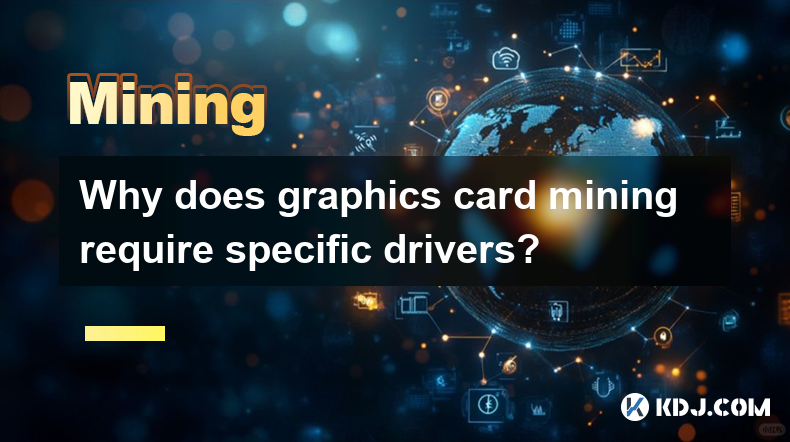
Why does graphics card mining require specific drivers?
Apr 14,2025 at 06:21pm
Graphics card mining, particularly for cryptocurrencies like Bitcoin and Ethereum, has become a popular way for enthusiasts to leverage their hardware to generate income. However, to effectively mine with a graphics card, specific drivers are required. This necessity stems from several key factors that ensure the mining process is optimized and efficien...
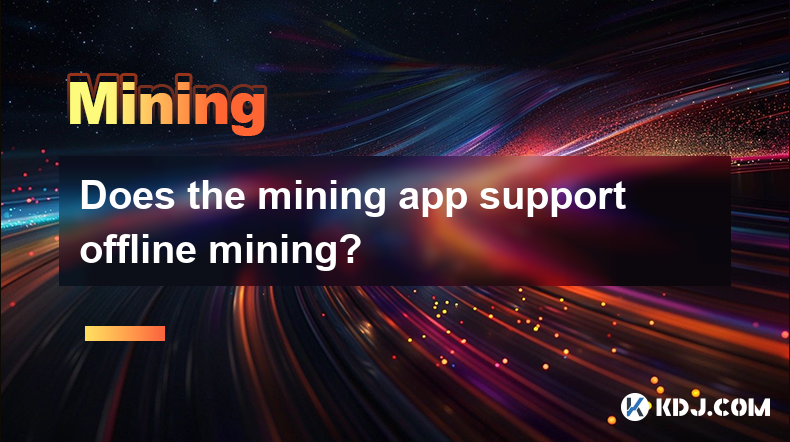
Does the mining app support offline mining?
Apr 14,2025 at 07:21pm
Does the Mining App Support Offline Mining?In the world of cryptocurrency, mining apps have become increasingly popular as they offer users the opportunity to generate income through their smartphones or other devices. A key question that often arises is whether these mining apps support offline mining. Offline mining refers to the ability to mine crypt...
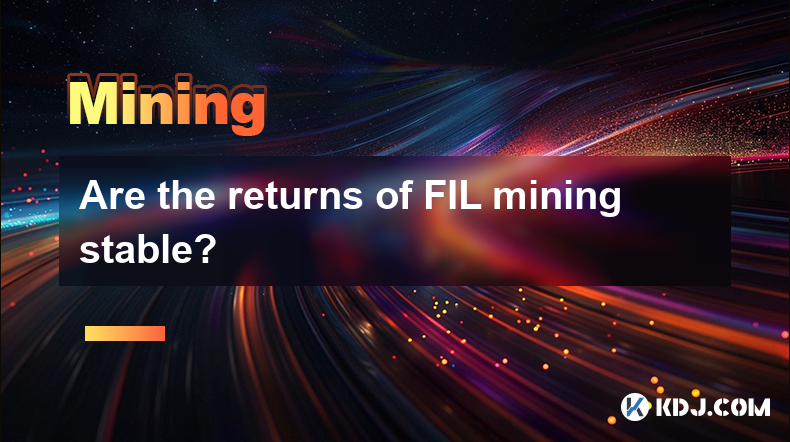
Are the returns of FIL mining stable?
Apr 14,2025 at 05:43pm
Understanding FIL Mining and Its ReturnsFIL, or Filecoin, is a decentralized storage network that allows users to rent out their unused storage space in exchange for FIL tokens. The concept of mining FIL involves providing storage to the network and being rewarded with FIL tokens. A crucial question many potential miners ask is whether the returns from ...
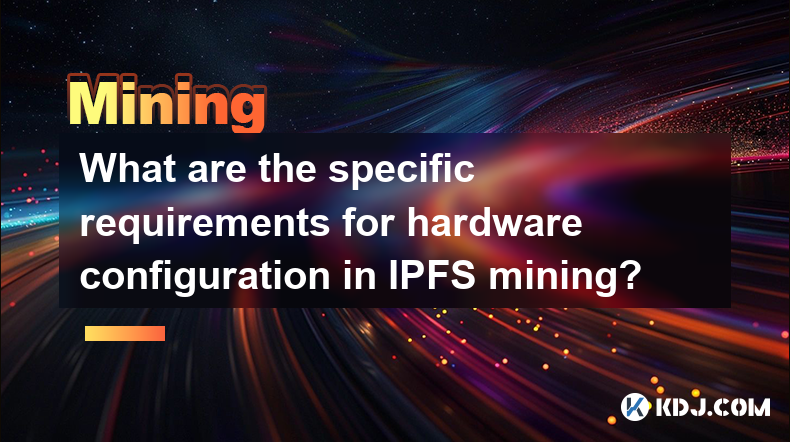
What are the specific requirements for hardware configuration in IPFS mining?
Apr 14,2025 at 07:50pm
Introduction to IPFS MiningIPFS (InterPlanetary File System) is a decentralized storage system that allows users to store and share files across a peer-to-peer network. Mining in the context of IPFS refers to the process of contributing storage resources to the network and, in return, earning rewards. For those interested in participating in IPFS mining...

Which models of graphics cards perform better in mining?
Apr 14,2025 at 03:14pm
When it comes to mining cryptocurrencies, the performance of graphics cards is a critical factor that can significantly impact your mining efficiency and profitability. Different models of graphics cards offer varying levels of performance, and understanding which ones are best suited for mining can help you make an informed decision. In this article, w...
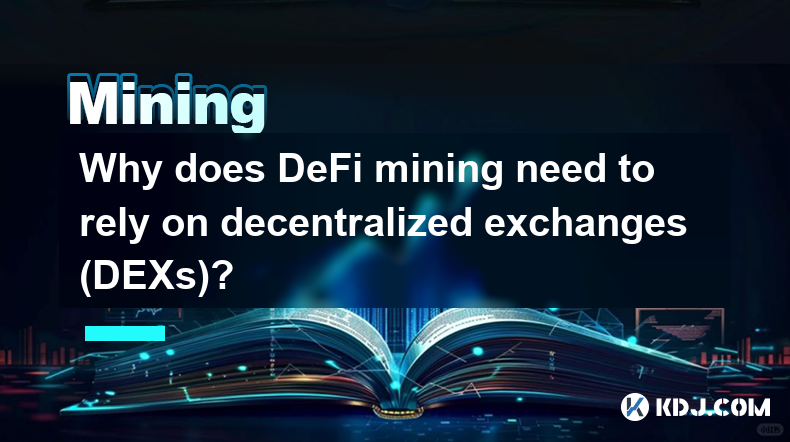
Why does DeFi mining need to rely on decentralized exchanges (DEXs)?
Apr 14,2025 at 11:42am
Decentralized Finance (DeFi) mining has become a cornerstone of the cryptocurrency ecosystem, offering users the opportunity to earn rewards by participating in various protocols. A critical component of this ecosystem is the reliance on decentralized exchanges (DEXs). This article explores the reasons behind this dependency, delving into the mechanics,...

Why does graphics card mining require specific drivers?
Apr 14,2025 at 06:21pm
Graphics card mining, particularly for cryptocurrencies like Bitcoin and Ethereum, has become a popular way for enthusiasts to leverage their hardware to generate income. However, to effectively mine with a graphics card, specific drivers are required. This necessity stems from several key factors that ensure the mining process is optimized and efficien...

Does the mining app support offline mining?
Apr 14,2025 at 07:21pm
Does the Mining App Support Offline Mining?In the world of cryptocurrency, mining apps have become increasingly popular as they offer users the opportunity to generate income through their smartphones or other devices. A key question that often arises is whether these mining apps support offline mining. Offline mining refers to the ability to mine crypt...

Are the returns of FIL mining stable?
Apr 14,2025 at 05:43pm
Understanding FIL Mining and Its ReturnsFIL, or Filecoin, is a decentralized storage network that allows users to rent out their unused storage space in exchange for FIL tokens. The concept of mining FIL involves providing storage to the network and being rewarded with FIL tokens. A crucial question many potential miners ask is whether the returns from ...

What are the specific requirements for hardware configuration in IPFS mining?
Apr 14,2025 at 07:50pm
Introduction to IPFS MiningIPFS (InterPlanetary File System) is a decentralized storage system that allows users to store and share files across a peer-to-peer network. Mining in the context of IPFS refers to the process of contributing storage resources to the network and, in return, earning rewards. For those interested in participating in IPFS mining...

Which models of graphics cards perform better in mining?
Apr 14,2025 at 03:14pm
When it comes to mining cryptocurrencies, the performance of graphics cards is a critical factor that can significantly impact your mining efficiency and profitability. Different models of graphics cards offer varying levels of performance, and understanding which ones are best suited for mining can help you make an informed decision. In this article, w...

Why does DeFi mining need to rely on decentralized exchanges (DEXs)?
Apr 14,2025 at 11:42am
Decentralized Finance (DeFi) mining has become a cornerstone of the cryptocurrency ecosystem, offering users the opportunity to earn rewards by participating in various protocols. A critical component of this ecosystem is the reliance on decentralized exchanges (DEXs). This article explores the reasons behind this dependency, delving into the mechanics,...
See all articles






















































































